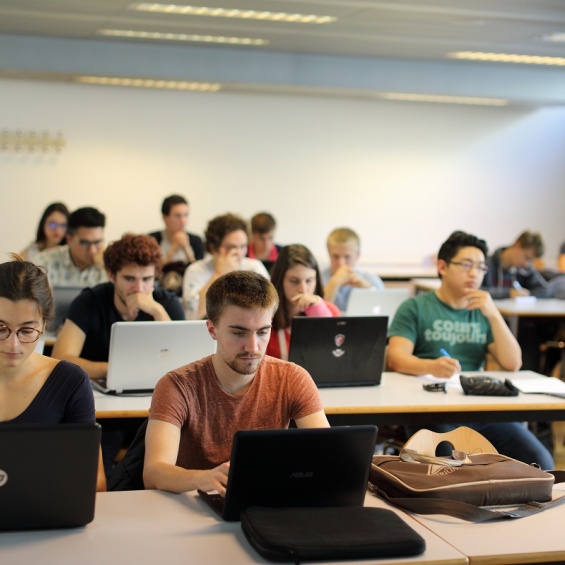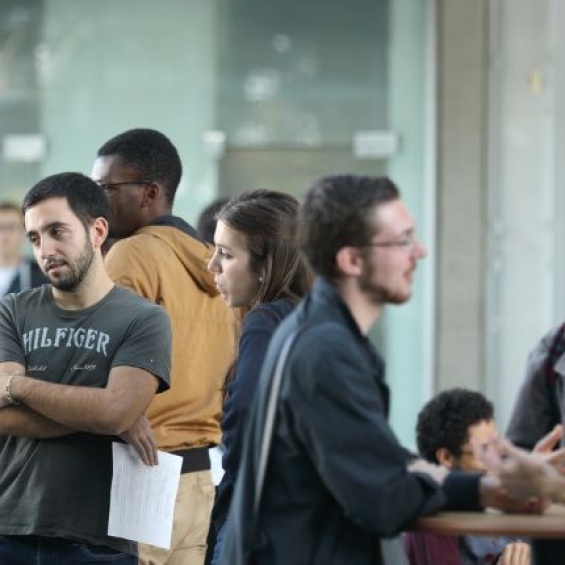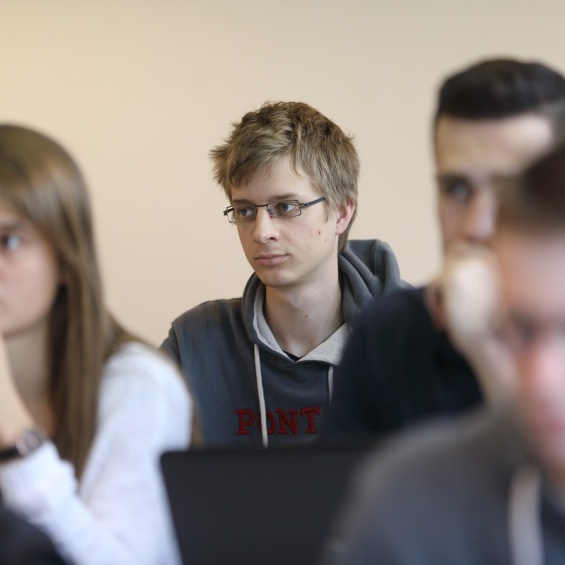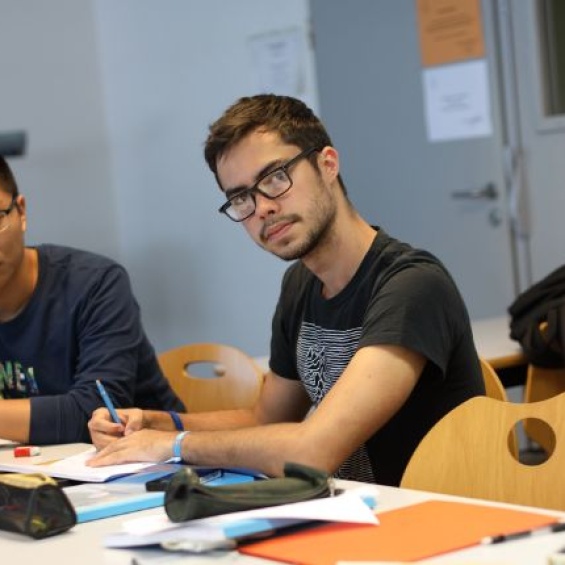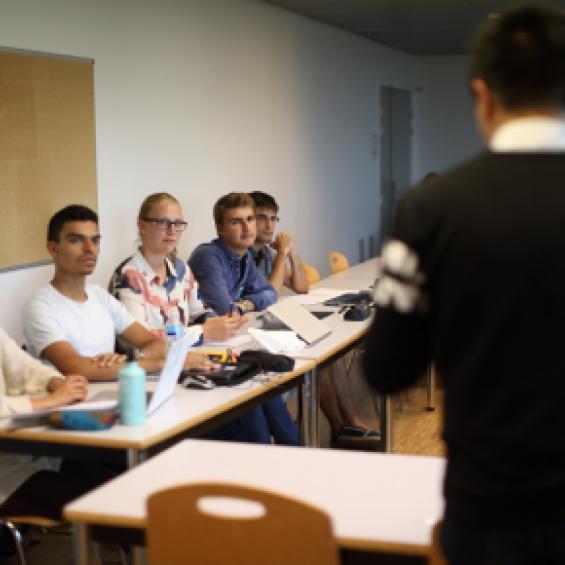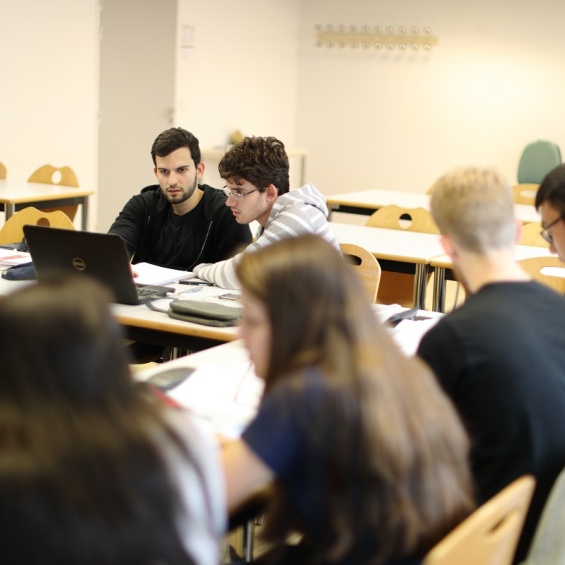Masters
In addition to the engineering program, École nationale des ponts et chaussées runs or co-runs master's programs that train experts for entry into the job market or for further doctoral study.
Most of the School's master's programs are run within the Institut Polytechnique de Paris. The School also offers two M2 programs under co-accreditation agreements with other higher education institutions.
Masters at the Institut Polytechnique de Paris
These programs are open to French, European, and international students.
To apply for an M1, you must hold a bachelor's degree (awarded by a French institution), an international bachelor's degree, or an equivalent qualification (180 ECTS credits).
If you are a French or European Union national, or have completed a year of study in France, applications for M1 programs must be submitted on the "Mon Master" website.
If you are from a country outside the European Union and have not studied in France for a year, applications for M1 must be submitted via the Institut Polytechnique de Paris registration platform
To apply for an M2, you must have earned 60 ECTS credits in a Master's program or hold a degree corresponding to 240 ECTS credits, or hold a Master's degree.
Applications for M2 programs must be submitted via the Institut Polytechnique de Paris registration platform.
Engineering students from the Institut Polytechnique de Paris schools have the opportunity to enter directly into the second year of a Master's degree program.
Admission calendar
Application on "Mon Master" website:
- From 17 February to 16 March 2026
Applications via the Institut Polytechnique de Paris registration platform
- Session 1: from 29 Octobre 2025 to 8 January 2026
- Session 2: from 9 January 2026 to 26 March 2026
- Session 3: from 27 March 2026 au 28 May 2026 (some masters are not open during the 3rd session)
Planning and Urban Development
Environmental, Energy, and Transportation Economics - Co-accreditation with Université Paris Saclay, Université Paris Nanterre and IFP School
Co-accreditation with Université Paris Saclay, Université Paris Nanterre and IFP School.
- M1 in Environmental, Energy, and Transportation Economics - in French
- M2 Environmental Economics - in French
- M2 Economics of Energy - in French
- M2 Prospective Modeling - in French
- M2 Transport and Mobility Economics - in French
Energy
- M1 Energy
- M1 OFFWIND - Offshore wind energy
- M2 Energy Transition At Local Scale (TET) - in French
- M2 OFFWIND - Offshore wind energy
Nuclear Engineering
Civil Engineering
- M1 Civil engineering and construction
- M2 Civil engineering and construction
- M2 Mechanics of soils, rocks, and structures in their environment (MSROE) - in French
- M2 Materials science for sustainable construction (SMCD)
Mechanics
Transport, Mobility, Networks - Co-accreditation with Université Paris-Est Créteil and Université Gustave Eiffel
Co-accreditation with Université Paris-Est Créteil and Université Gustave Eiffel
- M1 Transport, Mobility, Networks - in French
- M2 Transport and Sustainable Development (TRADD) - in French
- M2 Transport, Mobility (TM) - in French
Specialization tracks (M2)
- Mathematics Vision Learning (Mathematics and Applications program) - Applications must be submitted on the Institut Polytechnique de Paris registration platform
- Mathematical Modelling (Applied Mathematics and Statistics program) - Applications must be submitted on the Institut Polytechnique de Paris registration platform
- Operational Research (Computer Science program) - Applications must be submitted on the Institut Polytechnique de Paris registration platform
Masters at École nationale des ponts et chaussées
These programs are open to French, European, and international students.
To apply for an M2, you must have earned 60 ECTS credits in a Master's program or hold a degree corresponding to 240 ECTS credits, or hold a Master's degree.
Applications for the M2 program for all candidates (including engineering students from École nationale des ponts et chaussées) must be submitted on the Paris School of Economics website.
Analysis and Political Economy - Co-accreditation with Université Paris 1, PSL and EHESS
Co-accreditation with Université Paris 1, PSL and EHESS.
Applied Economics - Co-accreditation with PSL and EHESS
Co-accreditation with PSL and EHESS.



